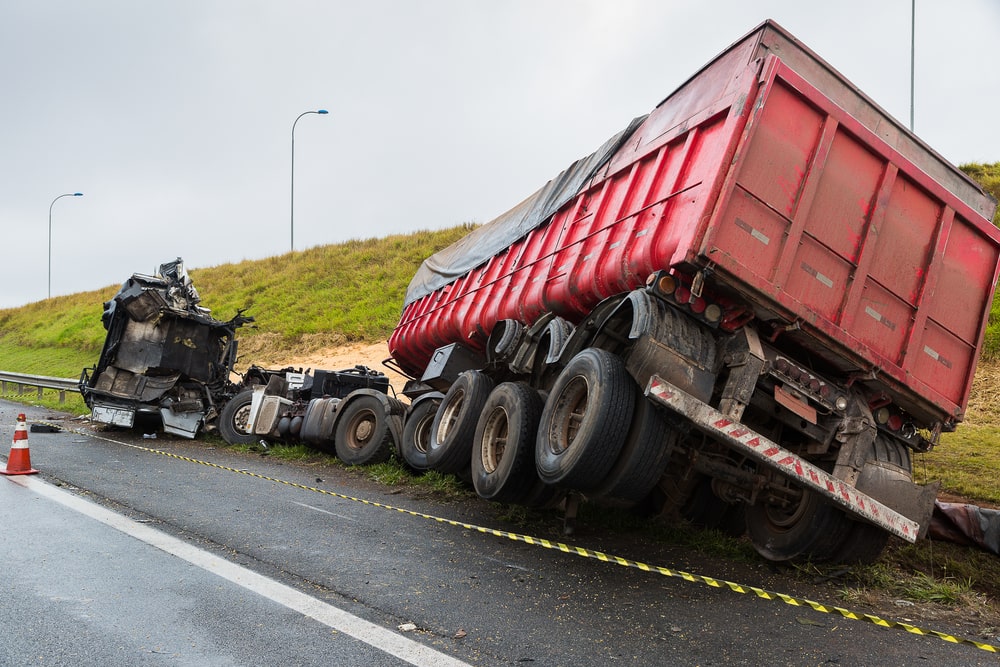BATON ROUGE PERSONAL INJURY LAWYER
Pennsylvania Truck Accident Laws
100% Committed To Maximizing Your Recovery
Pennsylvania Truck Accident Laws

Pennsylvania truck accident laws are designed to address the unique circumstances of accidents involving commercial vehicles, protecting the rights of victims and ensuring fair outcomes. As a no-fault state for motor vehicle accidents, Pennsylvania has specific legal rules that impact the claims process, insurance requirements, and liability determination for truck accidents. It’s important for both victims and responsible parties to understand the laws governing these incidents to handle cases effectively.
Fault Rules And Insurance Requirements In Pennsylvania
Pennsylvania follows a no-fault insurance system for car accidents, but truck accidents often fall under additional legal considerations. Drivers involved in truck accidents may pursue claims through their personal insurance or directly against the at-fault party. Unlike passenger vehicles, commercial trucks typically carry higher insurance limits, reflecting the significant potential for injury and damage in accidents.
In Pennsylvania, truck drivers and trucking companies must comply with both state and federal regulations. Commercial truck operators must hold specific insurance policies based on the type of cargo transported and vehicle weight. These insurance minimums are often higher than those required for personal vehicles. Victims in truck accidents may recover damages for medical expenses, lost income, pain, suffering, and other losses.
Regulations For Truck Drivers And Companies
Truck drivers in Pennsylvania are required to adhere to strict licensing and operational standards, including holding a valid Commercial Driver’s License (CDL). Federal and state laws regulate how many hours drivers can operate without rest to minimize the risk of fatigue-related accidents. These rules are outlined in the Federal Motor Carrier Safety Administration (FMCSA) regulations, which Pennsylvania enforces for commercial drivers operating within the state.
Additionally, trucking companies must maintain their vehicles to meet safety standards. Regular inspections and proper maintenance are critical, and failure to comply can lead to liability in the event of an accident. Evidence of poor maintenance, such as brake failure or tire defects, often plays a key role in determining liability.
Liability In Pennsylvania Truck Accidents
Pennsylvania uses a modified comparative negligence rule to assign fault in truck accidents. Under this rule, an injured party can recover compensation only if their share of the fault does not exceed 50%. For example, if a victim is found to be 30% at fault for an accident, they may still recover 70% of their damages. This legal framework encourages all parties to act responsibly and reduces frivolous claims.
Establishing liability in truck accident cases often involves analyzing multiple factors, such as the driver’s conduct, vehicle maintenance records, and compliance with federal regulations. Evidence such as black box data, GPS records, and eyewitness accounts can play a significant role in strengthening a claim.
Filing Deadlines And Legal Processes
Pennsylvania law imposes a two-year statute of limitations for filing personal injury claims, including those arising from truck accidents. This means victims must initiate legal action within two years from the date of the accident. Claims involving wrongful death follow the same deadline. Missing this deadline can bar recovery entirely, regardless of the circumstances.
Given the extensive documentation and legal coordination often required, acting promptly after a truck accident is critical. Gathering medical records, police reports, and other evidence early in the process strengthens a case and helps resolve disputes more efficiently.
Failing to act within the two-year statute of limitations can have significant consequences for victims of truck accidents. Not only does it prevent the filing of a lawsuit, but it may also result in the loss of crucial evidence over time. Witnesses may become harder to locate, their memories may fade, and physical evidence such as vehicle damage or accident scene conditions may deteriorate or be repaired.
Additionally, insurance companies may leverage delays to weaken claims, disputing the severity of injuries or the connection between the accident and damages incurred. By addressing legal and procedural requirements early, victims can preserve their rights, maintain the integrity of their case, and increase the likelihood of achieving a favorable outcome. Prompt action ensures all relevant documents, testimonies, and supporting evidence are gathered and organized effectively, providing a solid foundation for negotiating with insurers or presenting a case in court.
Call To Action For Legal Guidance
Pennsylvania truck accident laws can be challenging to address without the proper guidance and understanding of state-specific rules. At Truck Law, we focus on providing reliable and professional legal assistance tailored to your case. If you or a loved one has been affected by a truck accident, we’re here to help you explore your legal options and pursue the compensation you deserve. Contact us today to get started with a free consultation.